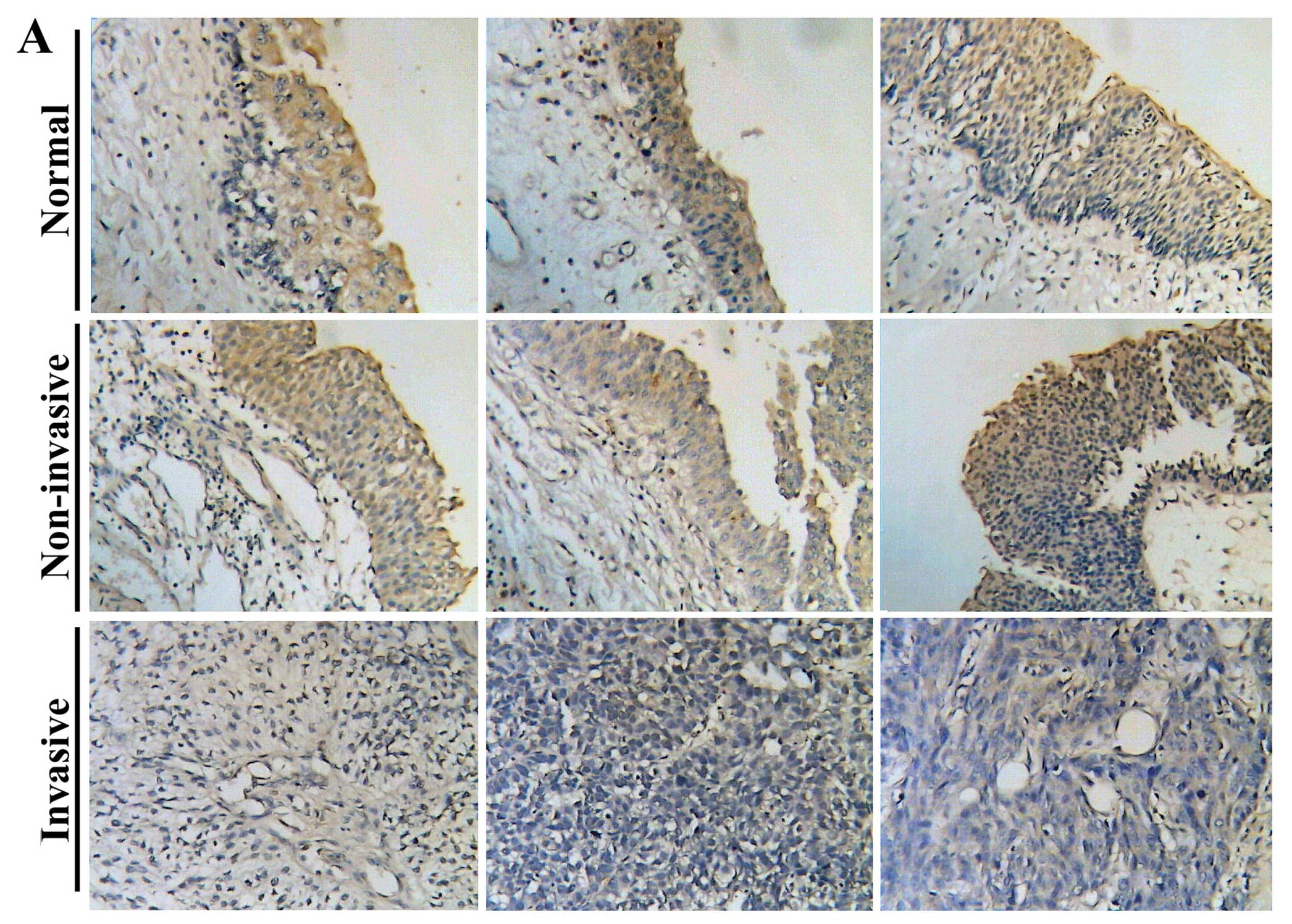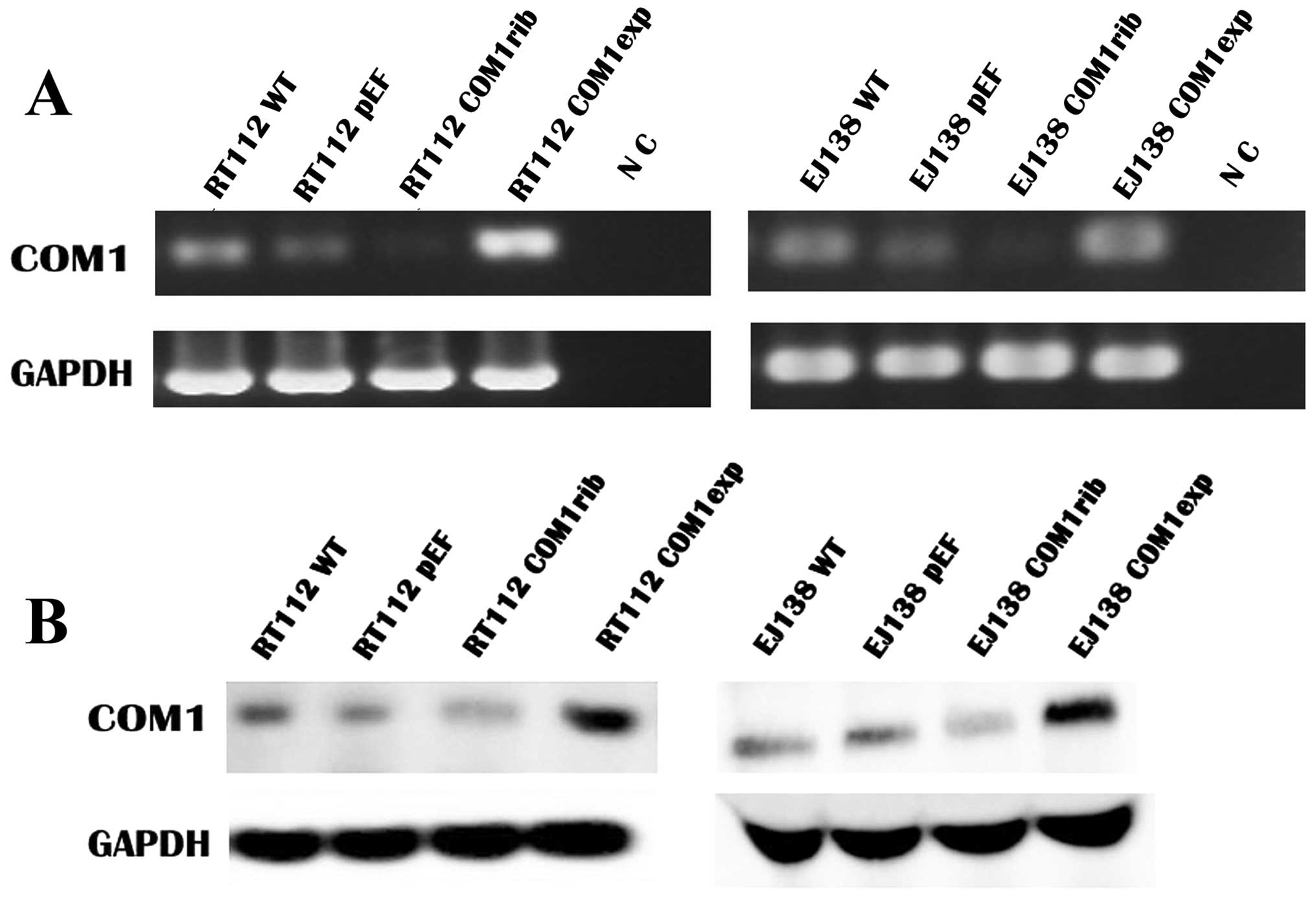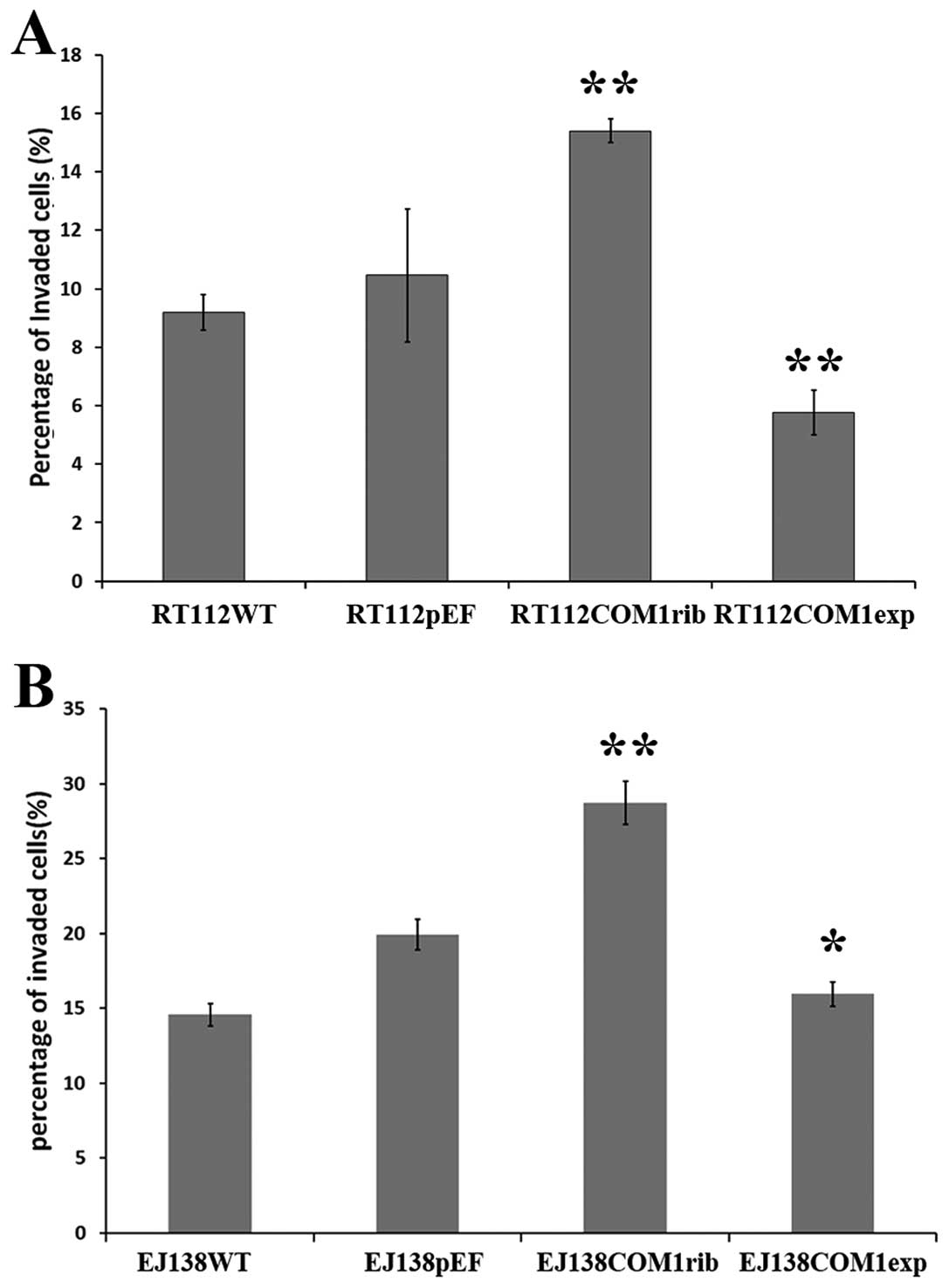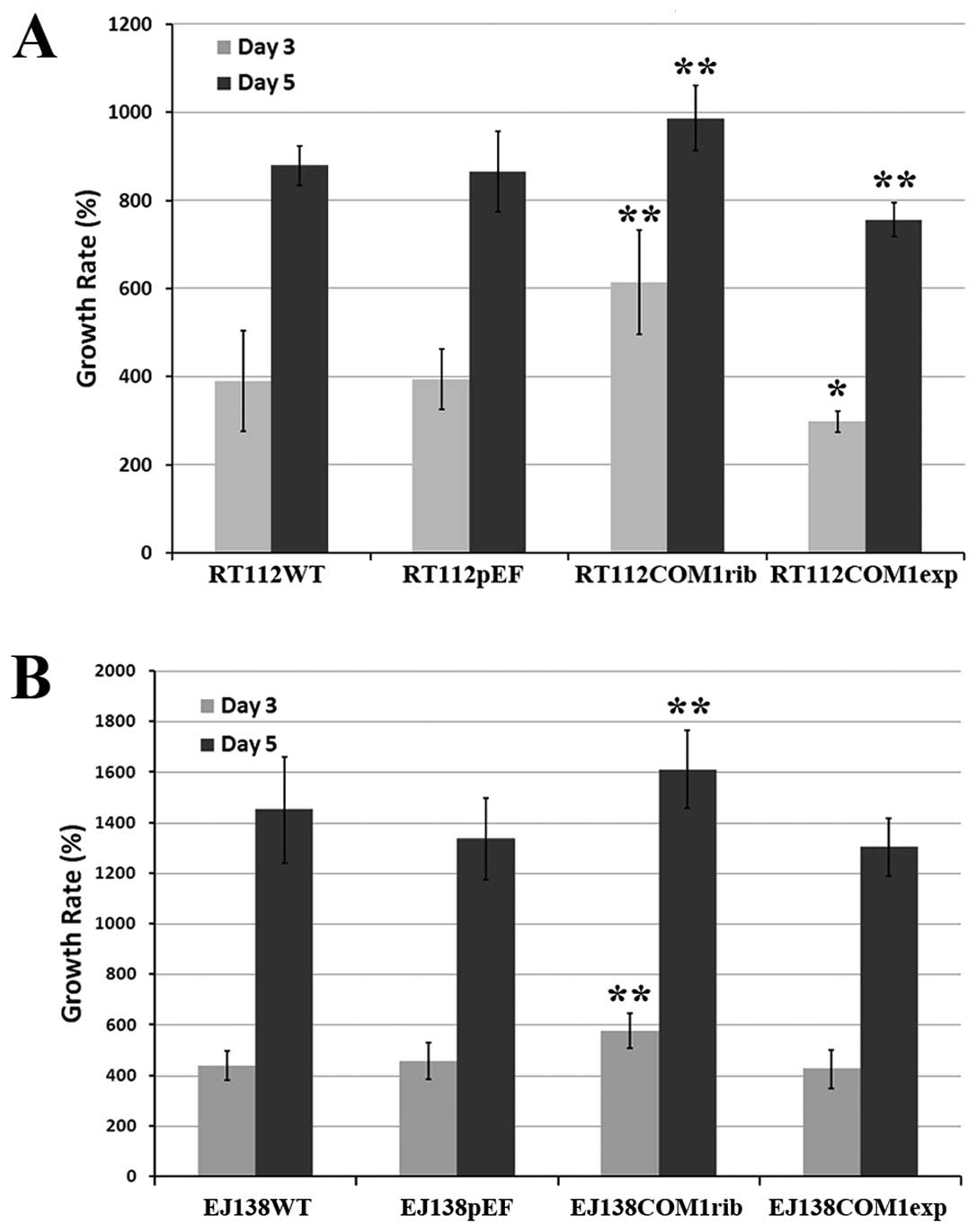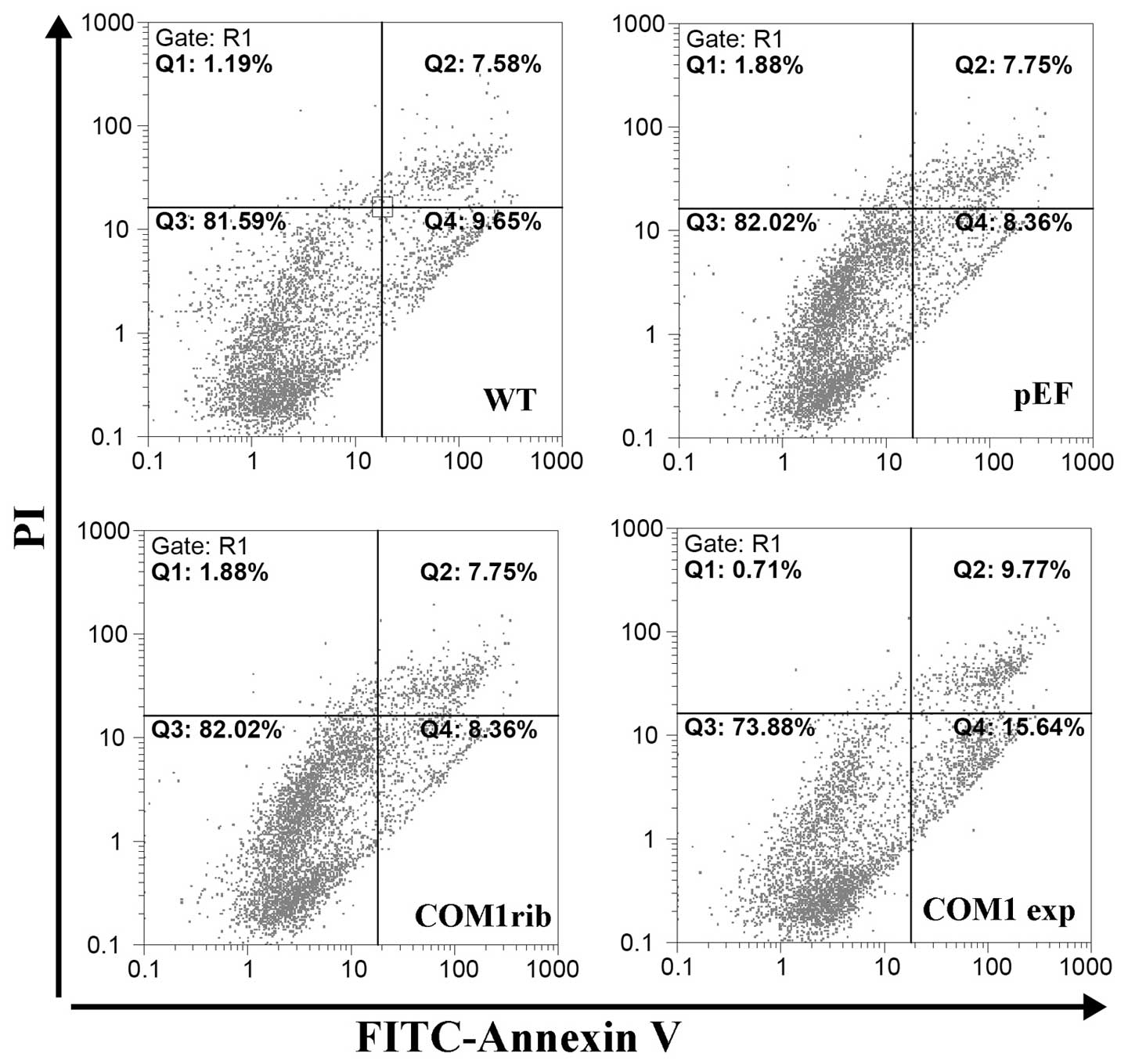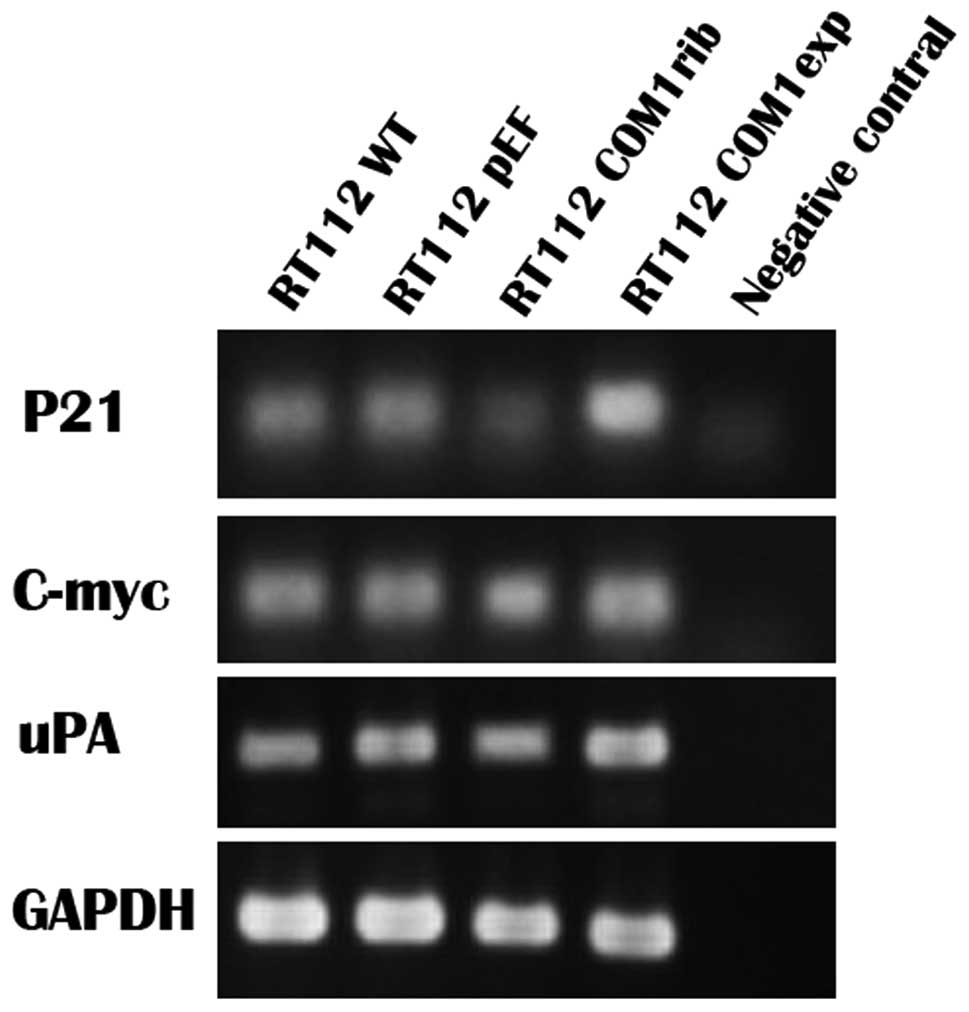|
1
|
Ree AH, Tvermyr M, Engebraaten O, Rooman
M, Rosok O, Hovig E, Meza-Zepeda LA, Bruland OS and Fodstad O:
Expression of a novel factor in human breast cancer cells with
metastatic potential. Cancer Res. 59:4675–4680. 1999.
|
|
2
|
Mallo GV, Fiedler F, Calvo EL, Ortiz EM,
Vasseur S, Keim V, Morisset J and Iovanna JL: Cloning and
expression of the rat p8 cDNA, a new gene activated in pancreas
during the acute phase of pancreatitis, pancreatic development, and
regeneration, and which promotes cellular growth. J Biol Chem.
272:32360–32369. 1997. View Article : Google Scholar
|
|
3
|
Su SB, Motoo Y, Iovanna JL, Berthezene P,
Xie MJ, Mouri H, Ohtsubo K, Matsubara F and Sawabu N:
Overexpression of p8 is inversely correlated with apoptosis in
pancreatic cancer. Clin Cancer Res. 7:1320–1324. 2001.PubMed/NCBI
|
|
4
|
Ito Y, Yoshida H, Motoo Y, et al:
Expression and cellular localization of p8 protein in thyroid
neoplasms. Cancer Lett. 201:237–244. 2003. View Article : Google Scholar : PubMed/NCBI
|
|
5
|
Jiang WG, Watkins G, Douglas-Jones A,
Mokbel K, Mansel RE and Fodstad O: Expression of COM-1/P8 in human
breast cancer and its relevance to clinical outcome and ER status.
Int J Cancer. 117:730–737. 2005. View Article : Google Scholar : PubMed/NCBI
|
|
6
|
Jiang WG, Davies G and Fodstad O: COM-1/P8
in oestrogen regulated growth of breast cancer cells, the ER-beta
connection. Biochem Biophys Res Commun. 330:253–262. 2005.
View Article : Google Scholar : PubMed/NCBI
|
|
7
|
Jiang WG, Davies G, Martin TA, Kynaston H,
Mason MD and Fodstad O: COM-1/p8 acts as a putative tumour
suppressor in prostate cancer. Int J Mol Med. 18:981–986.
2006.PubMed/NCBI
|
|
8
|
Clark DW, Mitra A, Fillmore RA, Jiang WG,
Samant RS, Fodstad O and Shevde LA: NUPR1 interacts with p53,
transcriptionally regulates p21 and rescues breast epithelial cells
from doxorubicin-induced genotoxic stress. Curr Cancer Drug
Targets. 8:421–430. 2008. View Article : Google Scholar : PubMed/NCBI
|
|
9
|
Allred DC, Harvey JM, Berardo M and Clark
GM: Prognostic and predictive factors in breast cancer by
immunohistochemical analysis. Mod Pathol. 11:155–168.
1998.PubMed/NCBI
|
|
10
|
Yu H, Ye L, Mansel RE, Zhang Y and Jiang
WG: Clinical implications of the influence of Ehm2 on the
aggressiveness of breast cancer cells through regulation of matrix
metalloproteinase-9 expression. Mol Cancer Res. 8:1501–1512. 2010.
View Article : Google Scholar
|
|
11
|
Ploeg M, Aben KK and Kiemeney LA: The
present and future burden of urinary bladder cancer in the world.
World J Urol. 27:289–293. 2009. View Article : Google Scholar : PubMed/NCBI
|
|
12
|
Youssef RF and Lotan Y: Predictors of
outcome of non-muscle-invasive and muscle-invasive bladder cancer.
Scientific World J. 11:369–381. 2011. View Article : Google Scholar : PubMed/NCBI
|
|
13
|
Ree AH, Pacheco MM, Tvermyr M, Fodstad O
and Brentani MM: Expression of a novel factor, com1, in early tumor
progression of breast cancer. Clin Cancer Res. 6:1778–1783.
2000.PubMed/NCBI
|
|
14
|
Ito Y, Yoshida H, Motoo Y, et al:
Expression of p8 protein in medullary thyroid carcinoma. Anticancer
Res. 25:3419–3423. 2005.PubMed/NCBI
|
|
15
|
Ree AH, Bratland A, Kroes RA, Aasheim HC,
Florenes VA, Moskal JR, Fodstad O, Bruland OS and Maelandsmo GM:
Clinical and cell line specific expression profiles of a human gene
identified in experimental central nervous system metastases.
Anticancer Res. 22:1949–1957. 2002.PubMed/NCBI
|
|
16
|
Giroux V, Malicet C, Barthet M, Gironella
M, Archange C, Dagorn JC, Vasseur S and Iovanna JL: p8 is a new
target of gemcitabine in pancreatic cancer cells. Clin Cancer Res.
12:235–241. 2006. View Article : Google Scholar : PubMed/NCBI
|
|
17
|
Su SB, Motoo Y, Iovanna JL, et al:
Expression of p8 in human pancreatic cancer. Clin Cancer Res.
7:309–313. 2001.PubMed/NCBI
|
|
18
|
Bratland A, Risberg K, Maelandsmo GM, et
al: Expression of a novel factor, com1, is regulated by
1,25-dihydroxyvitamin D3 in breast cancer cells. Cancer Res.
60:5578–5583. 2000.PubMed/NCBI
|
|
19
|
Trump DL, Muindi J, Fakih M, Yu WD and
Johnson CS: Vitamin D compounds: clinical development as cancer
therapy and prevention agents. Anticancer Res. 26:2551–2556.
2006.PubMed/NCBI
|
|
20
|
Niculescu AB III, Chen X, Smeets M, Hengst
L, Prives C and Reed SI: Effects of p21(Cip1/Waf1) at both the G1/S
and the G2/M cell cycle transitions: pRb is a critical determinant
in blocking DNA replication and in preventing endoreduplication.
Mol Cell Biol. 18:629–643. 1998.
|
|
21
|
Smits VA and Medema RH: Checking out the
G(2)/M transition. Biochim Biophys Acta. 1519:1–12. 2001.
View Article : Google Scholar : PubMed/NCBI
|
|
22
|
Malicet C, Giroux V, Vasseur S, Dagorn JC,
Neira JL and Iovanna JL: Regulation of apoptosis by the
p8/prothymosin alpha complex. Proc Natl Acad Sci USA.
103:2671–2676. 2006. View Article : Google Scholar : PubMed/NCBI
|
|
23
|
Jiang WG, Davies G, Kynaston H, Mason MD
and Fodstad O: Does the PGC-1/PPARgamma pathway play a role in
COM-1/p8 mediated cell growth inhibition in prostate cancer? Int J
Mol Med. 18:1169–1175. 2006.PubMed/NCBI
|
|
24
|
Goruppi S and Ionanna JL: Stress-inducible
protein p8 is involved in several physiological and pathological
processes. J Biol Chem. 285:1577–1581. 2010. View Article : Google Scholar : PubMed/NCBI
|
|
25
|
Davies ML, Parr C, Sanders AJ, Fodstad O
and Jiang WG: The transcript expression and protein distribution
pattern in human colorectal carcinoma reveal a pivotal role of
COM-1/p8 as a tumour suppressor. Cancer Genomics Proteomics.
7:75–80. 2010.
|
|
26
|
Li X, Martin TA and Jiang WG: COM-1/p8
acts as a tumour growth enhancer in colorectal cancer cell lines.
Anticancer Res. 32:1229–1237. 2012.PubMed/NCBI
|
|
27
|
Frisch SM and Francis HL: Disruption of
epithelial cell-matrix interactions induces apoptosis. J Cell Biol.
124:619–626. 1994. View Article : Google Scholar : PubMed/NCBI
|
|
28
|
Shao J, Sheng H, DuBois RN and Beauchamp
RD: Oncogeneic Ras-medicated cell growth arrest and apoptosis are
associated with increased ubiquitin-dependent cyclin D1
degradation. J Biol Chem. 275:22916–22924. 2000. View Article : Google Scholar : PubMed/NCBI
|















